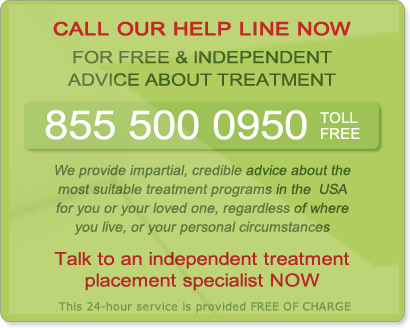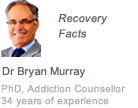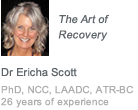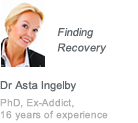What is Process Addiction?
What is Process Addiction?
Process addiction is a form of psychological addiction in which the activity being pursued does not involve any physically addictive qualities. Whereas, with substance addiction, drugs contain opiates and narcotics and alcohol encourages the release of dopamine in the brain, the “process” addictive pursuit of shopping, pornography, gambling or dieting (among other process addictions) cannot be attributed to a physically addictive stimulant.
What the two forms of addiction share is an imbalance in the desire/gratification centers of the brain. Addicts have been found to have a less active gratification center than non-addicts so, when a desire is fulfilled, the addict senses a lower reward value and goes to greater extremes next time to satisfy their desire – eventually developing a voluntary pastime into a psychological need.
Many process addictions have their root cause in circumstances that the addict has no control over – their genes, early childhood experiences and social environment, for example – and, when a predisposition to participate in specific activities engages an imbalance in the desire/gratification centers of the brain, there is an increased likelihood that the person will become a process addict.
Types of Process Addiction
There are many, many different types of process addictions, and the majority of them cannot be treated by abstinence or detox. Individuals with eating disorders, compulsive shopping tendencies and workaholics should receive appropriate help in order that they can get a balance in their lives. The same applies to those addicted to pornography – who should not be denied love in their lives because the way in which they currently seek fulfillment – or those fixated by their religious beliefs, who should not have the opportunity to practice their faith taken away from them.
Only process addictions such as gambling, video gaming and social media addiction can be assisted by abstinence; but abstinence alone will not remove the desire to participate in these activities and the core issues which cause addictive behavior of this nature need to be psychologically addressed as soon as the first signs of process addiction manifest.
Signs of Process Addiction
As demonstrated by the desire/gratification explanation above, process addictions initially begin on a small scale and gradually expand. Occasionally process addictions are substitutes for substance addictions – for example when an eating disorder replaces a drug habit – but they all follow a similar pattern in which the activity or behavior is practically unnoticeable at first, before developing to the stage where they interfere with the daily life of the addict.
There are seven indicators which experts believe can help to identify signs of process addiction:-
- Changes in the emotional state when participating in an activity which leads an observer to believe there is a compulsion to repeat the activity
- Continuing to participate in an activity irrespective of any negative physical, social, emotional, financial or psychological consequences
- Using defense mechanisms to cover up the addictive behavior or using elaborate excuses to justify it
- A heightened sense of well-being following a psychological reward (such as a gambler winning at the racetrack) which then fuels the continued participation of the activity
- Depression or despair when the addict believes they have lost control of their addiction and no longer has the mental strength to stop or moderate the activity
- The acknowledgement that a problem exists while increasing the frequency to maintain the desire/gratification effect
- Withdrawal symptoms when unable to participate in the activity (such as a gambler losing at the racetrack) which can manifest as anger or anxiety
How to Help a Process Addict
Irrespective of the nature of the process addiction, if you wish to help a process addict you must first acknowledge that they have a form of mental illness which is not of their own making. Because there are no physically addictive elements present in process addiction, some people may ask why a compulsive shopper needs help to control their shopping or how come a gambler has not learned from experience that gambling does not pay. It is unsympathetic attitudes such as these which often prevent victims of process addiction from seeking professional help.
There are steps you can take to help ease a process addict away from their addictive behavior, such as replacing their harmful activities with meaningful alternatives or enrolling your friend/colleague/partner in support groups such as Gamblers Anonymous. However alternatives and support groups are unlikely to remove the desire/gratification imbalance or eliminate an existing predisposition. In order to do this, you will need to rely on professional help who can get to the root of the process addictive behavior.
Offering help to a process addict can be particularly difficult if the actions of a loved one have caused you financial hardship or been detrimental to your health, but help is at hand from our independent treatment specialists who can offer impartial advice and information about the types of process addiction treatments which are available.
Types of Process Addiction Treatments Available
There are many different types of process addiction treatments available from counseling to 12 step programs to rehabilitation. Rehabilitation – or residential process addiction treatment – is frequently the most effective solution to addiction illnesses as it involves a commitment from the addict to recover from their addiction and removes them from environments in which the temptation to relapse exists.
Rehabilitation also enables the process addict to spend concentrated time with psychotherapists and behavioral analysts to determine the core issues which have predisposed them to pursue certain activities and then address the desire/gratification imbalance which has caused the pursuit of these activities to become obsessive.
No two process addictions are the same, and therefore a number of methodologies exist to help the addict overcome their process addiction. After a psychological evaluation, a healthcare specialist will create a unique program for the addict which comprises of the most suitable treatments for their condition; which will then be complimented with participation in support groups when the addict returns to the community.
What Does Addiction Treatment Consist Of?
The content of a treatment program will depend largely on the nature and severity of the process addiction, but could consist of any of the following:-
- Psychotherapy and Psychiatric Services to establish and manage the background and mental health issues which have caused the process addiction
- Medical Services for when the psychological symptoms of process addiction withdrawal manifest as a physical health problem
- Pharmacotherapy to combine the benefits of the psychotherapy services and medical services to enable an easy transition back to full mental health
- Nutrition and Diet Programs where applicable to educate compulsive eaters/dieters about food values and the sensible consumption of food
- Alternative Therapies such as yoga, meditation and Tai-Chi help to manage stress triggers and help contemplation on the patient´s addiction
- Therapeutic and Recreational Activities which will provide meaningful alternatives to the addiction with other activities in which the desire/gratification centers are balanced
- Family Therapy Services to help families accept the process addiction is an illness and that steps are being taken to remedy the situation
- Aftercare to offer support when the patient returns to their familiar environments with the aim of maintaining moderation in, or abstinence from the process addiction.
Process Addiction Interventions
The intervention of an addiction treatment specialist can often help the addict acknowledge and come to terms with their addiction and its consequences. This is because the specialist breaks the pattern of denial, tension, argument and tears which often happens when a reluctant addict is confronted with accusations of addiction by a loved one.
The aim of an intervention is to get acceptance from the addict that they have a problem and their agreement to enter a treatment program. An intervention is often conducted away from the family home in a neutral location after extensive planning in order to prepare a strategy with friends, colleagues and members of the family.
The end-game strategy of an intervention may not always be to place the addict in a residential treatment facility for rehabilitation, but if this is considered necessary, an interventionist will discuss the options available to you when preparation is being made for the intervention. You can also speak now with an independent treatment placement specialist in advance of an intervention on our toll-free helpline.
Recovery from Process Addiction
Recovery from process addiction can only be maintained with ongoing support from family and community groups. With the internet providing so much accessibility to addictive pursuits such as porn, gambling, shopping, religion, social media and even work, it can be harder for a former process addict to maintain abstinence or moderation from their compulsive pursuit than it is for a substance addict to remain free from drugs or alcohol.
Relapses do not indicate failure, just a deviation from the path to full mental health, and although the initial steps of acknowledging that a problem exists and accepting that addiction treatment is required are important, the family therapy services and professional aftercare which are provided as part of a rehabilitation package are essential to complete the recovery from process addiction.
Get Professional Advice about Process Addiction
Unsympathetic attitudes, the cost of process addiction treatment, a reluctance to acknowledge a mental illness and a fear of the unknown can often prevent victims of process addiction and their families from seeking professional help.
Our free help line provides confidential and impartial advice about process addiction treatment, interventions and treatment placements irrespective of your geographical location or personal circumstances.
One of the services provided on our free help line is to determine how much financial assistance can be provided by your existing insurance cover to reduce your personal financial commitment and make the cost of process addiction treatment affordable.
At a time when you or those closest to you are at your most vulnerable, we aim to provide an understanding and practical approach without judgment, cost or obligation.












